HSBC 2002 Annual Report Download - page 45
Download and view the complete annual report
Please find page 45 of the 2002 HSBC annual report below. You can navigate through the pages in the report by either clicking on the pages listed below, or by using the keyword search tool below to find specific information within the annual report.-
 1
1 -
 2
2 -
 3
3 -
 4
4 -
 5
5 -
 6
6 -
 7
7 -
 8
8 -
 9
9 -
 10
10 -
 11
11 -
 12
12 -
 13
13 -
 14
14 -
 15
15 -
 16
16 -
 17
17 -
 18
18 -
 19
19 -
 20
20 -
 21
21 -
 22
22 -
 23
23 -
 24
24 -
 25
25 -
 26
26 -
 27
27 -
 28
28 -
 29
29 -
 30
30 -
 31
31 -
 32
32 -
 33
33 -
 34
34 -
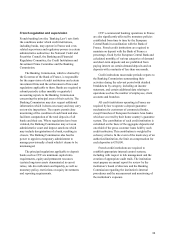 35
35 -
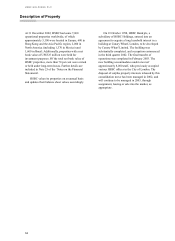 36
36 -
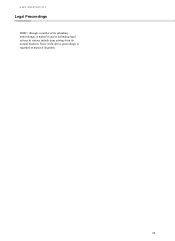 37
37 -
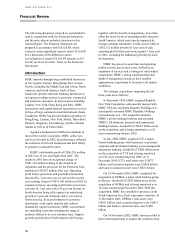 38
38 -
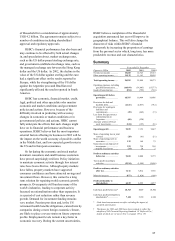 39
39 -
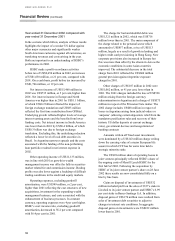 40
40 -
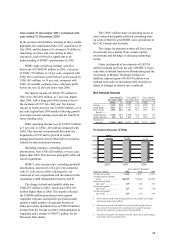 41
41 -
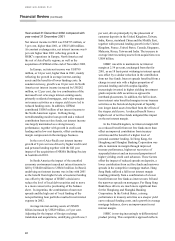 42
42 -
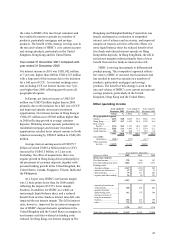 43
43 -
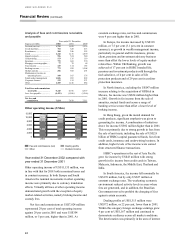 44
44 -
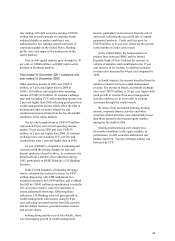 45
45 -
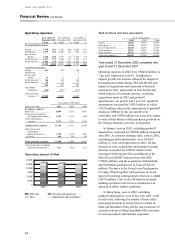 46
46 -
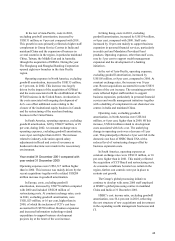 47
47 -
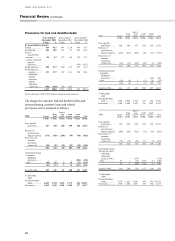 48
48 -
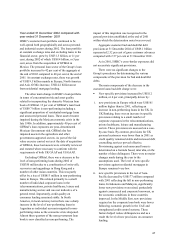 49
49 -
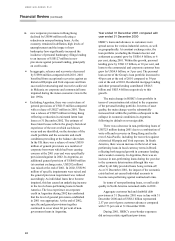 50
50 -
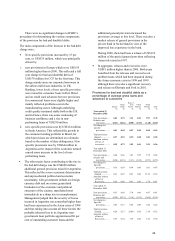 51
51 -
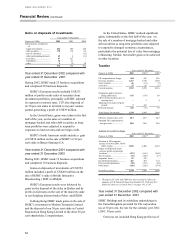 52
52 -
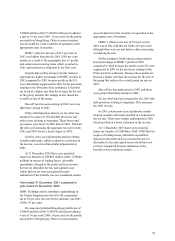 53
53 -
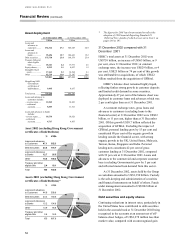 54
54 -
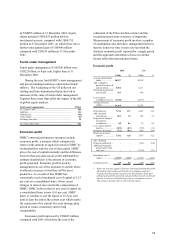 55
55 -
 56
56 -
 57
57 -
 58
58 -
 59
59 -
 60
60 -
 61
61 -
 62
62 -
 63
63 -
 64
64 -
 65
65 -
 66
66 -
 67
67 -
 68
68 -
 69
69 -
 70
70 -
 71
71 -
 72
72 -
 73
73 -
 74
74 -
 75
75 -
 76
76 -
 77
77 -
 78
78 -
 79
79 -
 80
80 -
 81
81 -
 82
82 -
 83
83 -
 84
84 -
 85
85 -
 86
86 -
 87
87 -
 88
88 -
 89
89 -
 90
90 -
 91
91 -
 92
92 -
 93
93 -
 94
94 -
 95
95 -
 96
96 -
 97
97 -
 98
98 -
 99
99 -
 100
100 -
 101
101 -
 102
102 -
 103
103 -
 104
104 -
 105
105 -
 106
106 -
 107
107 -
 108
108 -
 109
109 -
 110
110 -
 111
111 -
 112
112 -
 113
113 -
 114
114 -
 115
115 -
 116
116 -
 117
117 -
 118
118 -
 119
119 -
 120
120 -
 121
121 -
 122
122 -
 123
123 -
 124
124 -
 125
125 -
 126
126 -
 127
127 -
 128
128 -
 129
129 -
 130
130 -
 131
131 -
 132
132 -
 133
133 -
 134
134 -
 135
135 -
 136
136 -
 137
137 -
 138
138 -
 139
139 -
 140
140 -
 141
141 -
 142
142 -
 143
143 -
 144
144 -
 145
145 -
 146
146 -
 147
147 -
 148
148 -
 149
149 -
 150
150 -
 151
151 -
 152
152 -
 153
153 -
 154
154 -
 155
155 -
 156
156 -
 157
157 -
 158
158 -
 159
159 -
 160
160 -
 161
161 -
 162
162 -
 163
163 -
 164
164 -
 165
165 -
 166
166 -
 167
167 -
 168
168 -
 169
169 -
 170
170 -
 171
171 -
 172
172 -
 173
173 -
 174
174 -
 175
175 -
 176
176 -
 177
177 -
 178
178 -
 179
179 -
 180
180 -
 181
181 -
 182
182 -
 183
183 -
 184
184 -
 185
185 -
 186
186 -
 187
187 -
 188
188 -
 189
189 -
 190
190 -
 191
191 -
 192
192 -
 193
193 -
 194
194 -
 195
195 -
 196
196 -
 197
197 -
 198
198 -
 199
199 -
 200
200 -
 201
201 -
 202
202 -
 203
203 -
 204
204 -
 205
205 -
 206
206 -
 207
207 -
 208
208 -
 209
209 -
 210
210 -
 211
211 -
 212
212 -
 213
213 -
 214
214 -
 215
215 -
 216
216 -
 217
217 -
 218
218 -
 219
219 -
 220
220 -
 221
221 -
 222
222 -
 223
223 -
 224
224 -
 225
225 -
 226
226 -
 227
227 -
 228
228 -
 229
229 -
 230
230 -
 231
231 -
 232
232 -
 233
233 -
 234
234 -
 235
235 -
 236
236 -
 237
237 -
 238
238 -
 239
239 -
 240
240 -
 241
241 -
 242
242 -
 243
243 -
 244
244 -
 245
245 -
 246
246 -
 247
247 -
 248
248 -
 249
249 -
 250
250 -
 251
251 -
 252
252 -
 253
253 -
 254
254 -
 255
255 -
 256
256 -
 257
257 -
 258
258 -
 259
259 -
 260
260 -
 261
261 -
 262
262 -
 263
263 -
 264
264 -
 265
265 -
 266
266 -
 267
267 -
 268
268 -
 269
269 -
 270
270 -
 271
271 -
 272
272 -
 273
273 -
 274
274 -
 275
275 -
 276
276 -
 277
277 -
 278
278 -
 279
279 -
 280
280 -
 281
281 -
 282
282 -
 283
283 -
 284
284 -
 285
285 -
 286
286 -
 287
287 -
 288
288 -
 289
289 -
 290
290 -
 291
291 -
 292
292 -
 293
293 -
 294
294 -
 295
295 -
 296
296 -
 297
297 -
 298
298 -
 299
299 -
 300
300 -
 301
301 -
 302
302 -
 303
303 -
 304
304 -
 305
305 -
 306
306 -
 307
307 -
 308
308 -
 309
309 -
 310
310 -
 311
311 -
 312
312 -
 313
313 -
 314
314 -
 315
315 -
 316
316 -
 317
317 -
 318
318 -
 319
319 -
 320
320 -
 321
321 -
 322
322 -
 323
323 -
 324
324 -
 325
325 -
 326
326 -
 327
327 -
 328
328 -
 329
329
 |
 |
43
rate trading, with debt securities earnings US$236
million less as credit spreads on corporate bonds
widened sharply as market confidence was
undermined by low earnings growth and news of
corporate scandals in the United States. Dealing
profits were also impacted by weaknesses in the
equity markets.
Fees in debt capital markets grew strongly by 30
per cent, or US$40 million, as HSBC improved its
position in European markets.
Year ended 31 December 2001 compared with
year ended 31 December 2000
Other operating income in 2001 was US$313
million, or 3 per cent, higher than in 2000 at
US$11,163 million and included other operating
income of US$1,822 million. At constant exchange
rates and excluding CCF, other operating income was
2 per cent higher than 2000 reflecting good growth in
wealth management income which offset the falls in
broking and other securities-related fee and
commission income arising from the less favourable
conditions in the equity markets.
Net fees and commissions at US$7,470 million
represented 29 per cent of total operating income
against 30 per cent in 2000 and were US$159
million, or 2 per cent, higher than 2000. At constant
exchange rates and excluding CCF, net fees and
commissions were 1 per cent higher than in 2000.
As part of HSBC’s competitive positioning and
consistent with the pricing changes on loan and
deposit products referred to above, its customers also
benefited from a number of fee reductions during
2001, particularly in HSBC Bank plc’s UK Banking
business.
In the United Kingdom, eliminating mortgage
loan to valuation fees reduced revenues by US$7
million, dispensing with ATM withdrawal fees
benefited customers by US$49 million, and overdraft
fees fell by US$41 million as unauthorised overdrafts
fell, as we have made it easier for customers to
obtain authorised borrowings. Offsetting these
reductions, UK Banking achieved good growth in
wealth management with income rising by 9 per
cent, reflecting increased income from life, pension
and investment business, general insurance income
and private clients.
In Hong Kong and the rest of Asia-Pacific, there
was encouraging growth in wealth management
income, particularly in fee income from the sale of
unit trusts, reflecting the successful sale of capital-
guaranteed products. Credit card fees grew by
US$39 million, or 11 per cent, following the growth
in the number of credit cards issued.
In the United States, the harmonisation of
product lines between HSBC and the former
Republic Bank of New York and the increase in
volume of annuities sold contributed to the 15 per
cent increase in fee income. In addition insurance
revenues also increased by 44 per cent compared to
2000.
In South America, fee income benefited from the
initiatives taken to increase wealth management
revenue. Fee income in Brazil, at constant exchange
rates, was US$79 million, or 28 per cent, higher with
good growth in revenue from asset management
activities and success in cross-sales to existing
customers through the retails branch.
Revenues from investment banking, broking
income, corporate finance activities and other
securities-related activities were substantially lower
than those earned in the buoyant equity markets
during the first half of 2000.
Dealing profits held up well, despite less
favourable conditions in the equity markets, as
performance in debt securities and interest rate
trading improved. Foreign exchange trading was
bolstered by CCF.
